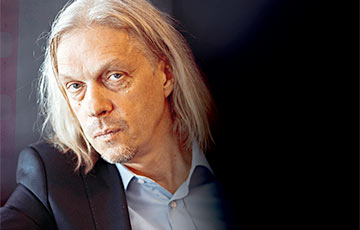Cultural Analyst: Lukashenka’s Era Already Passed
11- 18.05.2021, 13:31
- 7,370

It is outstanding due to its perfect lack of style.
Maksim Zhbankou, a cultural analyst, journalist and author of the Shocking Cult program, speaks of the “Lukashenka era” as already past. He declares that he does not see it in terms of museum preservation, “except for an endless parade of toilet bowls,” writes Belsat.
“It seems to me that this era was distinguished by a perfect lack of style, the absence of an intelligible and understandable cultural policy, cultural perspective, and cultural tradition”.
He calls this situation “no style” - the absence of a matrix of not only aesthetic or artistic, but also intellectual meanings. He describes the “era of Lukashenka” as endless stagnation without an understandable past and future: “on the ashes of traditions”, “in the shadow of the red empire”, “with a coma of predictive thinking”.
“If we recall the senseless and hopeless search for the “state” national idea, we can conclude that this was a situation of a national identity that was actually lost for a long time,” he argues. - It was the existence on the residual resource of what was accumulated during the Soviet times. In this sense, we were a reservation of Sovietness, in which everything that should have sounded looked hopelessly secondary”.
Although the Soviet past remained for Belarus, Belarus was not promised a Soviet future, Zhbankou notes. In the USSR, at least they were going to secure the “better tomorrow” and build communism by 1980, while Belarus under Lukashenka simply stopped in development for 27 years, he says.
Moreover, according to Zhbankou, Belarusians lived in a hyper-Pelerian reality, when they simultaneously had “Inner Europe”, an alternative and quasi-dissident culture - and “Inner Mongolia,” a hopelessly decayed and gloomy scoop. An intuitive, spontaneous, patchwork self-identification in the format of a “light partisan movement” (the term of the artist Ihar Tsishyn) worked both in the power scenario, and in the alternative reality. There was “a multi-layered disco dancing around emptiness in the place where a basic matrix of national consciousness exists in a normal society”, private improvisations against the background of a sleeping global landscape.
However, Zhbankou asks not to simplify the “museum of the Lukashenka era” to the plate “BSSR”. He says there is a difference between the “stability” endlessly declared by the authorities and actual stagnation - a movement without a goal and no shifts, “a monotonous march on the spot.” In this reality, he says, it was February 23 and May 9 every day, and May 10 never happened, and could never have happened.









